Luftwaffe Paratrooper Badge, by Assmann
SKU: 01.GTR.0707.101.01
Estimated market value:
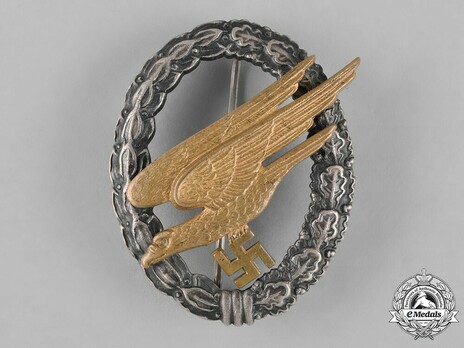
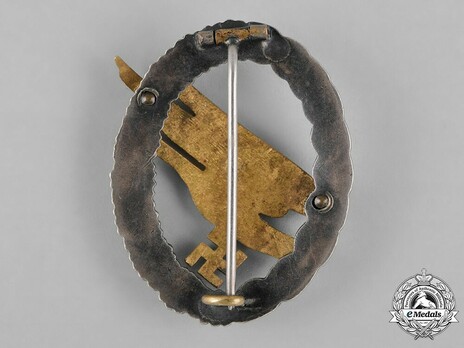
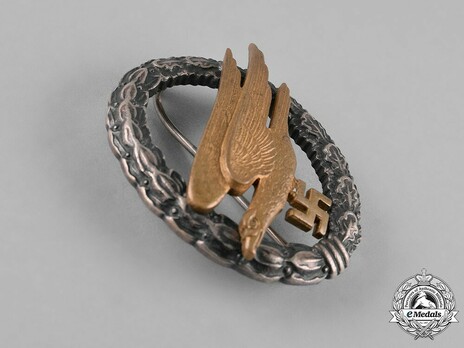
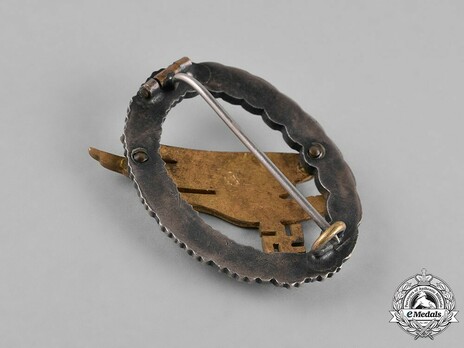
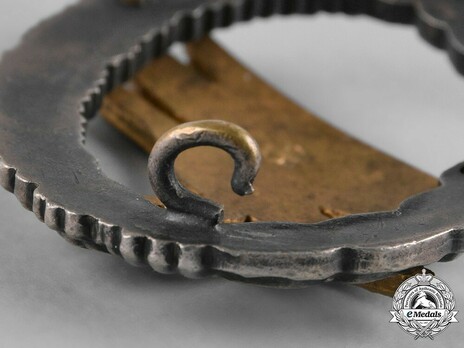
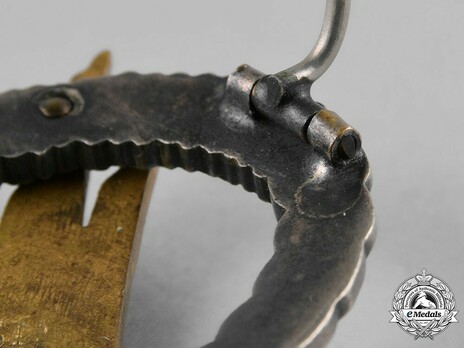
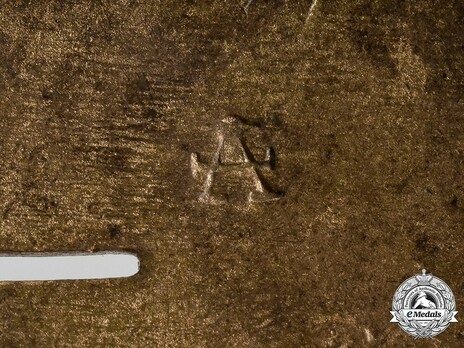
Estimated market value:
Attributes
History
The Luftwaffe Paratrooper Badge was instituted by Hermann Göring on November 5, 1936. It is a qualification badge that was awarded for those that successfully passed the tests to become a paratrooper. In order to do that, a soldier had to have six confirmed parachute jumps to his name.
Later regulations state that officially every owner of a Paratrooper Badge had to repeat this feat inside every 12 months period, otherwise they were to return their badge. However, there is no evidence that this was actually enforced. In fact, in the later years of the war the Luftwaffe Paratrooper Badge could be awarded to any soldier that was part of a paratrooper unit, even those that did not receive parachutist training, but were merely assigned to the unit as a medic or driver.
The initial regulations stated that the wreath of the badge was to be made of oxidized Neusilber. Neusilber, also known as nickel silver, is an alloy of brass and nickel, and does not in fact contain actual silver. Oxidizing nickel silver darkens it and gives it an antique look. The eagle was to be made of gilded brass.
In September of 1937, this was changed. Now, the entire badge was to be made of aluminum, with the wreath still in an antique silver look and the eagle still gilded. Some companies also experimented with cupal, which is not an alloy, but a composite material of an aluminum base with a thin copper plating.
With material shortages worsening as the war went on, by 1942 most badges were now made from a lower quality and abundant material, zinc.
Since most companies produced a plethora of different variants and variations, not necessarily all of them can and will be displayed here.
Assmann produced Luftwaffe Paratrooper Badges from the very introduction of the award until the end of the war. This resulted in lots of different variations of materials, hardware setups on the reverse, and maker marks. It is also the reason why badges made by this company are relatively abundant today.
Assmann’s eagle is very recognisable and did not change over the years. However, the company frequently redesigned its wreath, initially it being egg-shaped, giving way to a thin model, then a thick model, and the entire badge eventually being die struck (ca. 1942-1943), and finally die cast (ca. 1943-1945). Materials used include brass on early badges (ca. 1936-1937), switching to variants like an aluminum wreath with a cupal eagle (ca. 1937-1939), a nickel silver wreath with a brass eagle (ca. 1939-1942), and a zinc wreath with a brass eagle, with the late models made entirely from zinc.
Early badges are unmarked, while late badges may be marked “1”, “2”, or “L/64”, sometimes in combination. While “L/64” is the company’s LDO number, the “1” and “2” mark don’t refer to their PKZ number, but presumably to mold identification numbers of the molds used in the die cast process. Badges by this company also often feature the Assmann logo, an A inside a circle. This logo comes in many different variations.
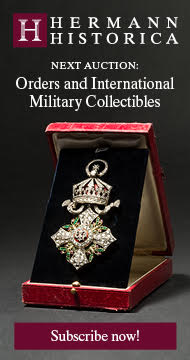
Versions
$1200 USD
Brass gilt/Nickel Silver
41.5x53mm
Assmann & Söhne, Lüdenscheid
$700 USD
Zinc gilt/Zinc
41.5x53mm
Assmann & Söhne, Lüdenscheid
The gilt coating on the badge pictured here has been lost to time.
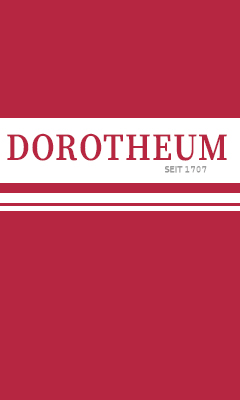
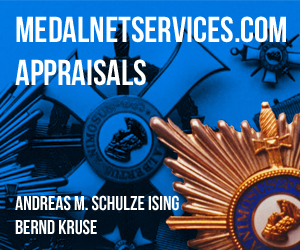
Comments
Sign in to comment and reply.

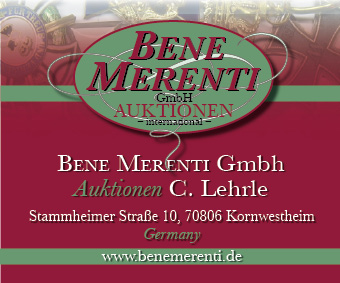
Scroll Top